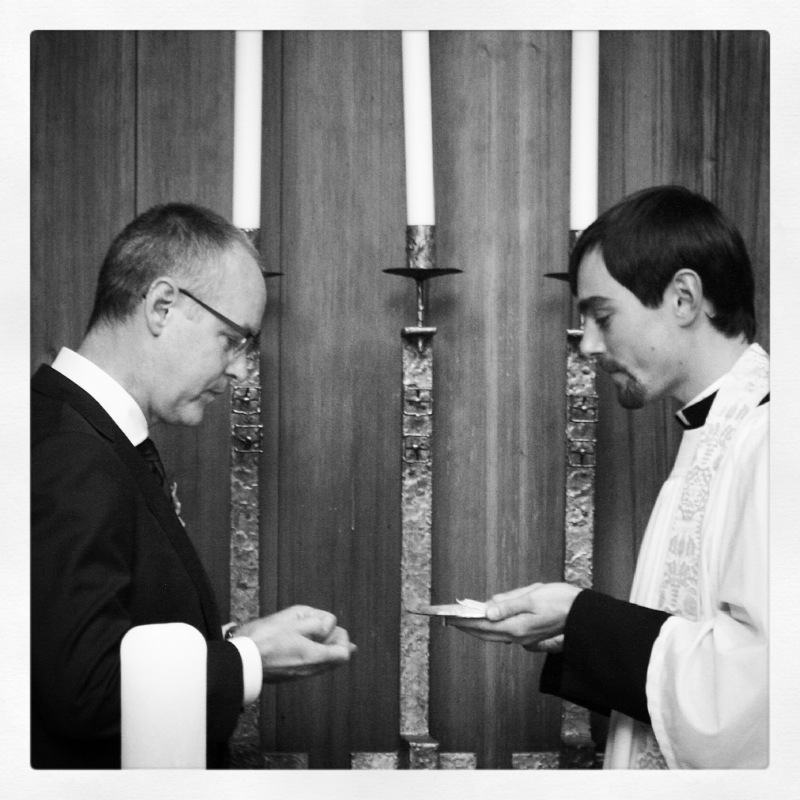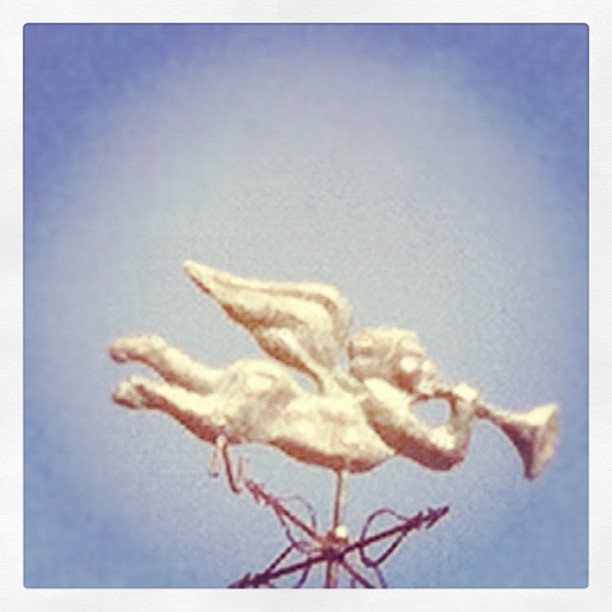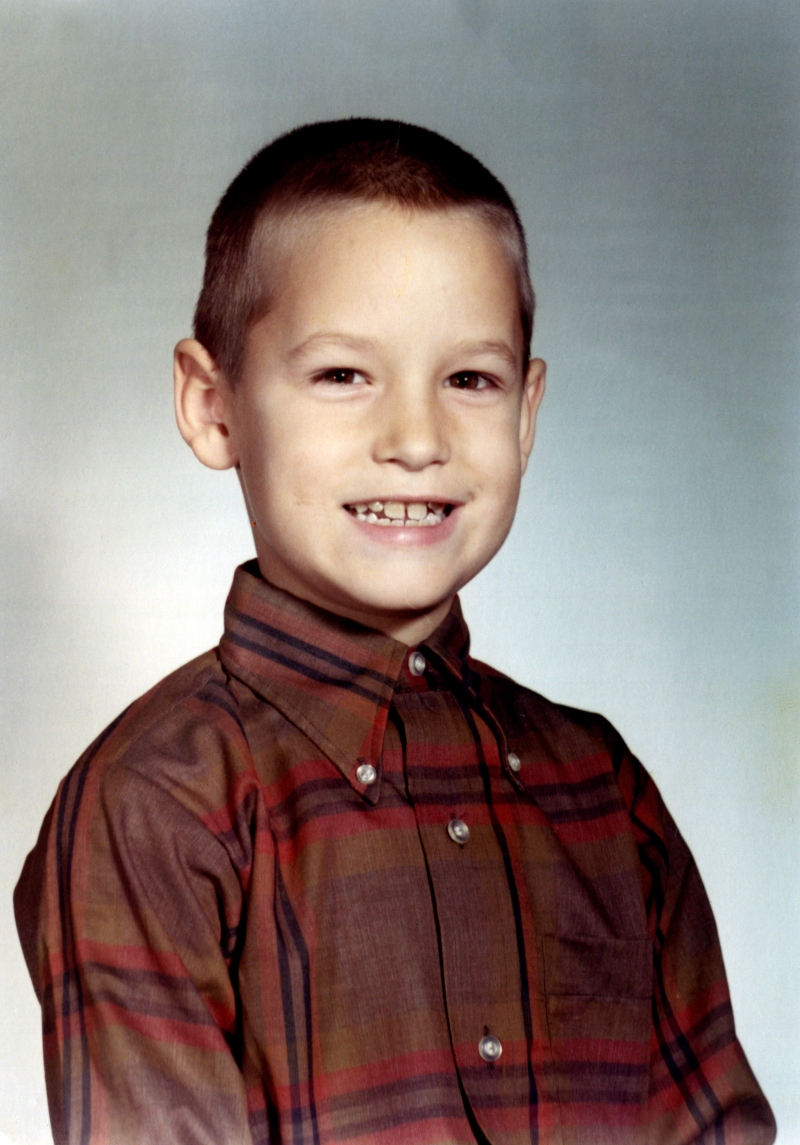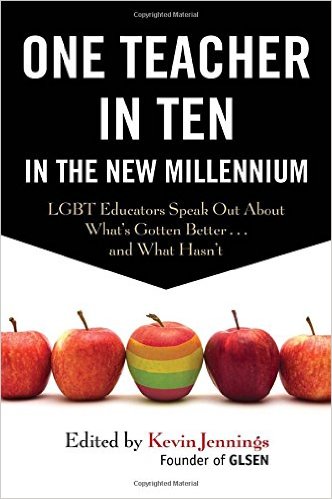I just received my current issue of RFD Magazine, with my story, “Not Losing My Religion” in it:
Born in the South at the end of the Baby Boom, I have a long and complicated relationship with the church. ‘The church’ for me being Christian, and, more specifically, the conservative Missouri Synod branch of the Lutheran Church.
As a child, I loved my religion. I remember sitting in Christ Lutheran’s sanctuary of blond wood and stained glass windows, a larger-than-life statue of Christ resurrected hanging over the altar, feeling transported by the setting, the music, and the rhythms of the liturgy. Some of my earliest memories are of liturgy—the Te Deum laudamus and Create in Me a Clean Heart, O God. As a gay child, I found great comfort in the teachings of love and meekness and the reverence of a savior who taught us to “turn the other cheek.” Fights at school and the bus stop were common occurrences growing up, and I was a ‘sensitive’ child in my mother’s words; a ‘mama’s boy’ in my older brothers’ eyes; a ‘sissy’ in the words of at least one teacher; and all that or much worse in the taunts of my classmates. Church was truly a refuge for the pre-adolescent me.
All that changed with my sexual awakening, which was so different than that of my straight brothers and peers. I came to hear more clearly the message of the church that I was wrong—an abomination. Like so many other gay and lesbian men and women, I slowly turned away from religion, dismissing my previous feelings of comfort and belief as being primitive and naïve. I stopped going to church when I left home for college, and it was a long time before I found my way back there again.
Two pivotal things worked to bring me back into the church’s orbit and, finally, into a pew. The first incident happened soon after I graduated from college. I found myself in the Southern gay mecca of Atlanta, and I found myself with a boyfriend. As Christmas approached, I realized that I was going to have to choose between spending the holiday with my family or with my new boyfriend—an untenable choice in my mind. Hoping to be able to spend Christmas with my family and my boyfriend, I came out to my mother. Not surprisingly, my mother, a good Missouri Synod Christian woman, struggled with my revelation. “Are you sure?” she asked, hoping that I had somehow made a mistake. My boyfriend did not come home for Christmas. I, however, continued coming home every weekend after coming out in hopes of showing my mother, recently widowed, that I was the same person she had always known.
One evening, as I was standing at the kitchen sink doing the dishes, my mother returned home from a Lutheran Women’s Missionary League meeting. She walked up behind me as I continued washing the dishes, wrapped her arms around me, and said, “I talked to Pastor about you after everyone else left the meeting. He said that God still loves and accepts you. I hope you know that I do, too.” My hands immersed in the hot soapy water, I stared forward, out the kitchen window, unable to wipe the tears that ran down my face. We had a good talk that night, and I called ‘Pastor’ the next morning to set up a meeting to talk with him. He admitted that he didn’t know anyone who was gay, but he was sure that God loved me. He and I became pen pals for several years after, corresponding regularly while I was away in the Peace Corps in Guatemala.
While his loving—his Christian—response was enough to keep me interested in God, it was not enough to overcome my fears of condemnation by God’s church, and I continued to keep my distance through my years in the Peace Corps and my return to the United States. I did, however, read and study on my own, finding much comfort, to my surprise, in the Bible. I also read historian John Boswell’s Christianity, Social Tolerance, and Homosexuality and Scanzoni and Mollenkott’s Is the Homosexual My Neighbor? and began to realize that ‘God’ and ‘church’ might not be synonymous. Nonetheless, I avoided the institution and the risks associated with it. Then, something happened in 1987 that brought me back through its doors and into a pew.
I had returned from the Peace Corps and was a nurse at George Washington University Hospital in Washington, DC, working with AIDS patients. One afternoon, as I was walking into a patient’s room to hang an IV, I heard a conversation taking place and, for some reason, I stopped and waited—and listened. A minister was visiting the patient, a gay man with AIDS, and they were having a beautiful talk, full of kindness and acceptance—no condemnation or guilt. I even heard the minister talk about the patient’s partner, who was also apparently a parishioner, in loving words. I was surprised—genuinely and pleasantly surprised. When the minister walked out, I asked him about his church. He was also a Lutheran, of the more liberal Evangelical Lutheran Church in America, and he invited me to come to a service. After thinking it over for a few weeks, I did, and I felt as if I’d returned home, easily falling into the rhythms of the liturgy. I ended up joining, and God seemed to bless my return by introducing me to the man who has been my partner for over 25 years at that church.
I still go to church, although I moved to the Episcopal Church in 2002 because I found them more theologically welcoming to LGBTQ persons. The Evangelical Lutheran Church has since opened its doors wide as well, but I’m a committed Episcopalian now, often serving on the altar with the priest. I remember the first time I gave communion to my partner—I had to choke back the tears as I offered the cup of wine, “The blood of Christ, the cup of salvation.” Another time, a parishioner called me after church to tell me that he had watched as the priest and I walked out into the congregation to commune an elderly member who couldn’t come forward. He said he had watched as I offered her the cup, and my face was changed. In truth, I do feel changed into a better version of me when participating in the service this way.
While I, too, have wandered down alternative paths on my spiritual journey, they have always brought me back home to ‘church’ through the blessings of clergy and others who have truly shown me the loving image of Christ that is at the heart of all true Christianity. At the same time, I understand that is not the case for so many of my LGBTQ brothers and sisters, and I pray that all of us find that love and acceptance somewhere, whether it be a church, a synagogue, a mosque, or in community or nature. We are all children of a loving God.






